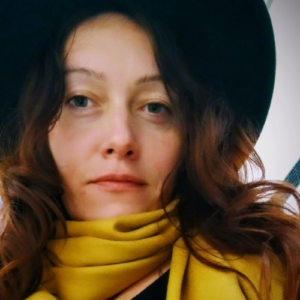One essential feature of this research is that, from the very start, it has been a true multidisciplinary collaborative project, initiated at the request of a social worker, conducted and supervised by music therapists, advised by neurologists, palliative care specialists, physical therapists and speech language specialists internationally, monitored by visiting nurses and clinical care coordinators. The result is the first study to address music therapy role in physical rehabilitation of persons with ALS.
This also appears to be the first study to systematically look at bulbar and respiratory functions support in ALS. Swallowing, vocalization and breathing are tightly coordinated, and close relationship exists between these processes, in terms of location and activation of the neurons (Matsuo, 2008). Overall emotional and physical condition of a person has great impact on these processes as well. However, support of these functions in persons with ALS has been traditionally disunited and apportioned between various medical and allied professionals, such as speech language therapist, nutritionist, physical therapist, ENT (ear, nose and throat) specialist, etc. Though specialist expertise is essential for the deep insight into the nature of each function, this separation may be disadvantageous from standpoint of integrative patient care. Drawing from the wealth of expert knowledge and supported by multidisciplinary collaboration, a music therapist who, by professional standards, has training in vocal technique, improvisation, as well as basic knowledge of anatomy, physiology, neurology and psychology, may be in the unique position to provide a crosscutting outlook for bulbar and respiratory support in ALS.
This research serves an immediate purpose of addressing the need for continued scientific inquiry to understand the role of exercise in supporting bulbar and respiratory functions of persons with ALS (Plowman, 2015) and providing a foundation for higher levels of evidence (K. Hanson et al., 2011) – in particular, delivering the necessary feasibility data for a future randomized clinical trial. The importance of rigorous clinical trials to support alternative ALS treatments has been emphasized by Motor Neurone Disease Association, citing the dual impact of ensuring ethical medical care, as well as protecting patients from the onslaught of pseudoscientific, often harmful practices.
It is worth mentioning that, as of today, this is the only music therapy clinical research study taking place in Russia that is registered with ClinicalTrials.Gov. ClinicalTrials.Gov is a database of privately and publicly funded clinical studies conducted around the world, an open resource provided by U.S. National Library of Medicine. In the time when music therapy field is yet shaping in Russia, this is an important advocacy event, exemplifying a globally recognized standard for professional practice.
It also appears that currently this is the only collaborative music therapy research between United Kingdom and Russia. It is an important memento of the plain fact that, at the times of political and economic tension, scientific collaboration between the countries can still occur, potentially improving health outcomes of people with amyotrophic lateral sclerosis across the borders.

